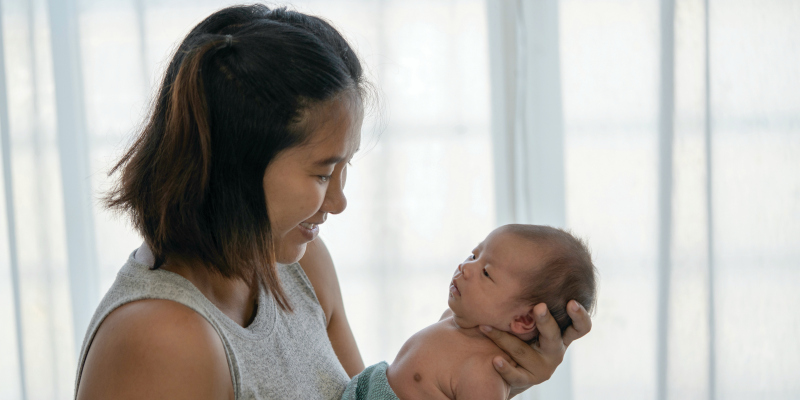By Katy Macek
Sara Finger knows firsthand the difference between having paid leave and not. She took unpaid leave after having her daughter in early 2010. Three years later she had her son and was able to take paid leave to care for him.
“The difference between having a reliable source of income and removing that stress while I was on leave with my son versus a loss of income for three months during leave [with my] daughter was really detrimental to the early start of my daughter’s life and early life as a mom,” she says.
Finger, who is founder and executive director of the Wisconsin Alliance for Women’s Health, hopes the Paid Family Medical Leave legislation would make things easier for future parents.
The Alliance’s mission is to help every woman at every stage of life reach optimal economic security, physical and mental health, so backing the legislation is a “no-brainer,” says Finger.
“PFML hits on every one of those [goals],” Finger says. “It’s one of those things we’re lagging behind the rest of the world when it comes to offering this kind of employee protection and financial security for workers.”
State Sen. Janis Ringhand, D-Evansville, and State Rep. Sondy Pope, D-Mount Horeb, introduced the legislation, which would allow employees to contribute a percentage of their paychecks to an account run by the state’s Department of Workforce Development.
The legislation expands far beyond maternity leave. Paid family medical insurance would cover employees who have or adopt a child or need to care for themselves or a sick parent, spouse or child, Ringhand says. The funds would be distributed through DWD and need a doctor’s signature to use.
The current Family Medical Leave Act only covers 60% of the workforce, according to WAWH, and only guarantees unpaid leave.
According to WAWH, an estimated 2.7 million Wisconsinites would be eligible, and 6% of those would access the benefits in a given year. All employees working at least 680 hours a year, plus self-employed individuals who elect this coverage, would be eligible.
Ringhand sees the legislation, which has been proposed for the last five years, as a “common-sense approach.” With no cost to the state or employer, it’s an easy way to ensure peace of mind should an emergency occur—because no one has control over when that happens.
“Those who are fortunate enough to have paid sick leave is helpful, but even then, it quite often exceeds the time frame companies allow,” Ringhand says. “It puts a crimp on your finances, if not fully eliminating them.”
Smaller companies and lower-paying jobs often can’t guarantee an employee’s job if they leave for more than two weeks, a relatively small amount of time for long-term care or parental leave, according to Sarah Webber, a pediatrician with the UW School of Medicine and the director of wellbeing for the department of pediatrics.
Webber says parents having access to paid leave directly influences a newborn child’s health as well as the mother’s mental and physical health. But she supports the legislation because it goes so much beyond that.
“This is a step toward supporting people financially when they need to be away from work, and in a way that wouldn’t burden employers,” Webber says. “It could be huge at promoting health and wellbeing at all stages of life.”
The American Academy of Pediatrics and American College of Gynecology both recommend paid leave, with AAP recommending up to 12 weeks.
Pope, who has introduced this piece of legislation in the past, says she will continue introducing it as long as she serves until it passes because it’s an issue of “basic humanity.”
Eight states—California, New Jersey, Rhode Island, New York, Washington, Massachusetts, Connecticut and Oregon, plus Washington D.C.—have some form of paid family leave, and other states have discussed it.
“Knowing one in four new mothers in the U.S. returned to work within two weeks of giving birth doesn’t allow us to pretend to support workers, women, families or babies,” Pope says.
The odds of this legislation passing are slim. Ringhand says no one across the aisle has voiced support for the bill.
BRAVA Magazine reached out to Rep. Todd Novak, R-Dodgeville, and Rep. David Steffen, R-Green Bay, but requests for comment were not returned.
Even if it doesn’t pass, Pope says it still promotes conversations on the topic and, hopefully, motivates voters.
“We must educate others in order to bring Wisconsin to the table,” she says.


